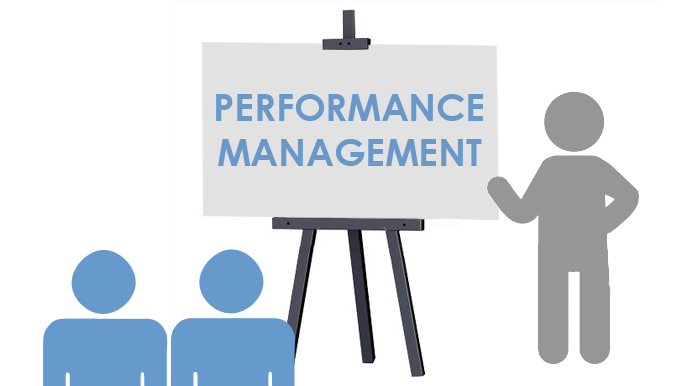People: Performance Management
The performance management process is a vital one for all SME business owner-managers to understand, and managing people performance effectively is key to success

POSTED ON: Monday, May 22nd, 2017
CATEGORIES: Business Strategy and Planning, Leadership and Management
Performance management definition
The performance review itself is defined as: “An analysis of an employee’s work habits undertaken at a fixed point in time to determine the degree to which stated objectives and expectations have been reached” (Source Entrepreneur Europe).
We often find that when managers think about reviewing people performance against objectives, they are thinking of a team member’s annual performance appraisal.
Reviewing proficiency and effectiveness should not be something that takes place only in the annual appraisal meeting.
Good annual appraisals are a summary of ongoing discussions and reviews that go on throughout the year, so the people performance management process is continual and happens every working day – if you want to achieve success.
Regular performance reviews throughout the year
An effective performance management process involving reviews will enable a manager to align each individual team member’s day-to-day actions with the overall objectives of both the employee and the business.
Even when managers monitor the proficiency of their team regularly, they often focus only on the detail of what a staff member does against each objective and do not focus on how they do their job. Ideal people performance is achieved through careful monitoring and understanding at all stages of work.
This means they are only reviewing part of a job, and when that happens usually that is the only part that the team member feels is worth focusing on.
It is also important for managers to make time to regularly observe each team member when they are working and to see what they do and how they do it in relation to the objectives that have been set. The definition of performance management should not refer to a single meeting or performance review, but instead to the ongoing process.
Seek feedback
As part of the ongoing performance management process, to get the most out of the experience, it is well worthwhile seeking feedback from others on the team member, related to their objectives. This could come from customers, suppliers, other members of their team or other people in the business with whom they interact.
It is also useful for managers to get team members to regularly report back to them on how they view their performance against their objectives. However it is important to ensure that this feedback includes examples of what they have achieved and how they have achieved it. The most effective kind of people performance management celebrates successes as well as identifying areas for improvement.
By regularly monitoring performance against the objectives set managers can check how well staff members are meeting their performance standards, offer support to address underperformance and also recognise good performance.
Structuring people performance reviews
When conducting interim and annual reviews it is important to have an agenda which is a structured stock take. This should include:
- A clear description of each objective
- What the staff member has done in relation to each objective
- How they have done that
- How they are performing
- Judgement on how the person is developing personally
- Objectives for the next period
- Any development areas that need to be worked on
Set a clear agenda for each review, make sure it is booked in your diary and that of the staff member, always keep the appointment and perform each review and performance management process consistently.
Benefits of the performance management process
Regular people performance reviews mean that each team member has clarity about where they are performing well. And also where they may need further improvement or support. It avoids surprises during an annual appraisal when a team member suddenly discovers they have not been doing a good job and meeting their performance objectives.
It is vital for managers to understand and buy into a regular performance management process and review. When managers do not understand the importance and value of these, we often see appraisals conducted late or not at all leading to an avoidance of performance-related discussions. Left unchecked this can lead to all sorts of organisational issues, negatively impacting people performance daily and in the long term.
Final thoughts
An annual performance management process alone will not alert you to any problems that may have been there all year. The best practice is to carry out regular monitoring and review of people performance against key measurable objectives. The findings and actions from each regular review throughout the year can then be fed into the annual appraisal.
We have designed a simple Performance Appraisal template for you to customise and make your own.
As ever, if you would like external perspective or help on any of the above from Pro-actions business coaches, please do get in touch or book a free business advisory session.
To find out more about key areas to improve and focus on as part of the performance management process, you can use our quick and easy Business Health Assessment tool.